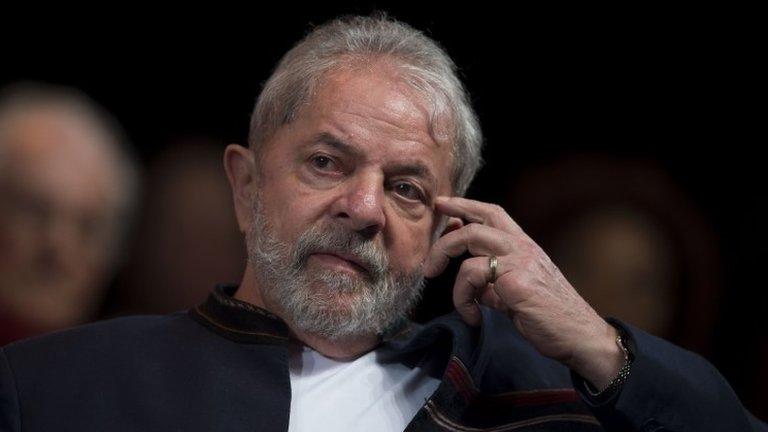Rival rallies as Brazil awaits Lula jail ruling
- Published
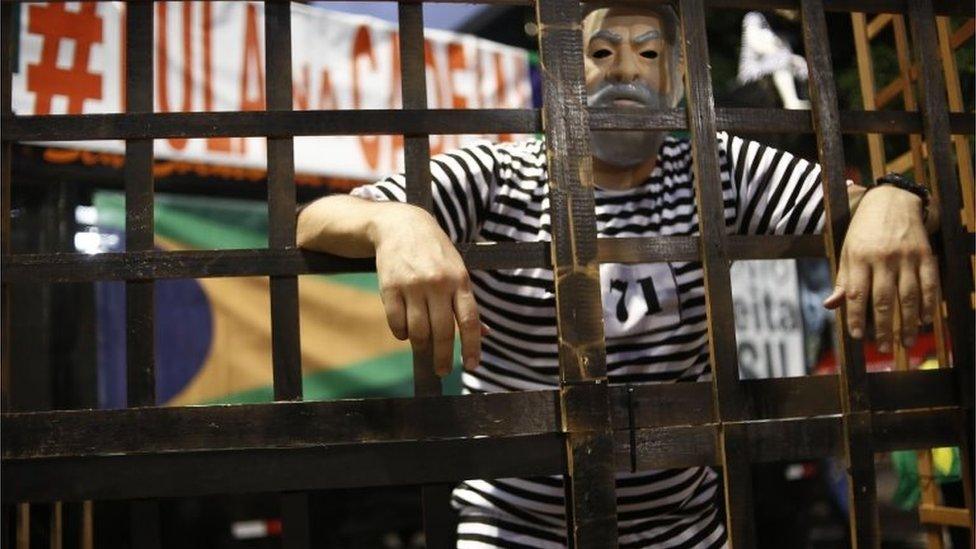
Critics of the ex-president want to see him jailed as soon as possible
Supporters and opponents of Brazil's former President, Luiz Inácio Lula da Silva, have been demonstrating in key cities across Brazil.
The protests come ahead of a Supreme Court ruling expected later on Wednesday on whether Lula can remain free while appealing against his corruption conviction.
Polls suggest Lula is the top candidate for October's presidential election.
But being sent to jail could severely hamper his campaign.
Who is Lula?
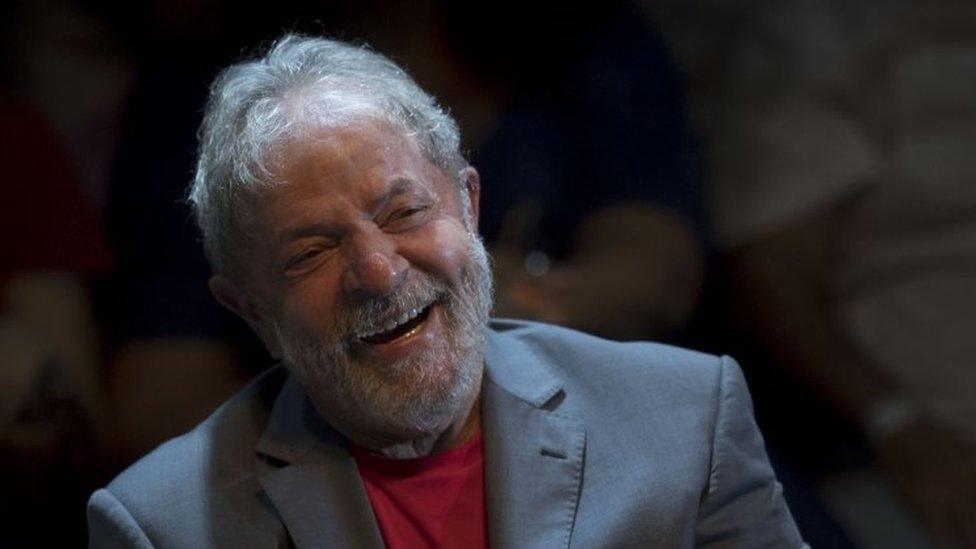
Polls suggest Lula could win with a wide margin if allowed to run in October's presidential election
Lula, 72, governed Brazil for eight years from January 2003. A former metalworker and trade union activist, he was the first left-wing leader to make it to the presidency in Brazil in nearly half a century.
During his presidency, Brazil experienced its longest period of economic growth in three decades allowing his administration to spend lavishly on social programmes.
Tens of millions were lifted out of poverty thanks to the initiatives taken by his government and he left office after two consecutive terms (the maximum allowed in Brazil) with record popularity ratings.
How did he get into this mess?
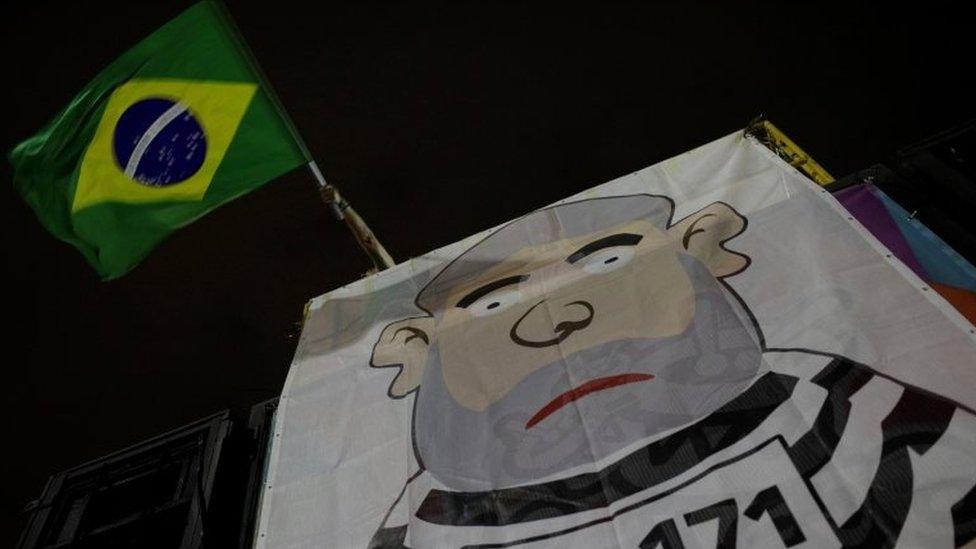
The former president is one ruling away from prison
After he left office, in 2014, prosecutors in Brazil started investigating allegations that Brazil's biggest construction firms overcharged state-oil company Petrobras for building contracts.
The investigation, dubbed Operation Car Wash, uncovered a huge web of corruption involving top level politicians from a broad spectrum of parties taking kickbacks.
Lula himself was investigated in connection with a beachfront apartment allegedly renovated and offered to him as a bribe by engineering firm OAS.
The ex-leader has denied any wrongdoing and says that the allegations are politically motivated and designed to keep him from running for president.
How far has the case progressed?
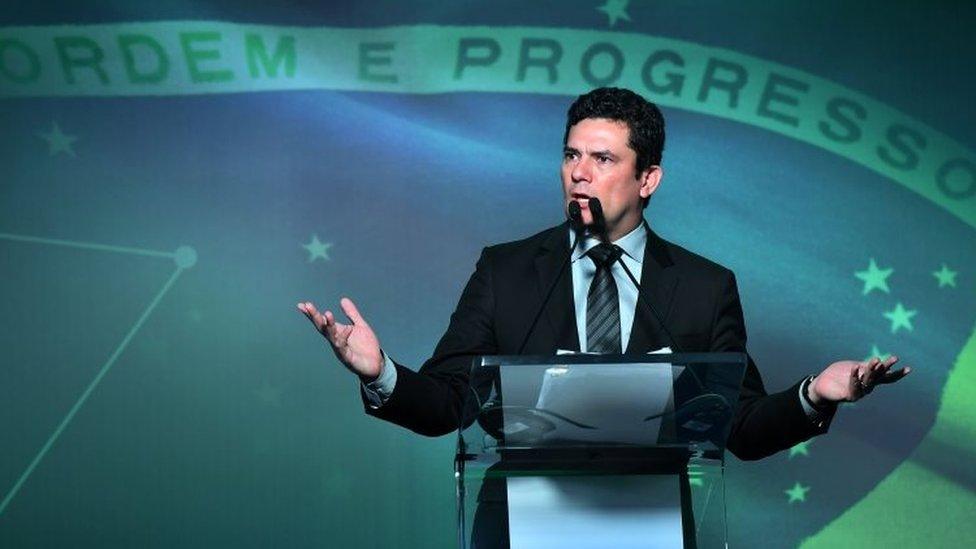
Sergio Moro is the judge in charge of the huge Operation Car Wash probe
In July, the judge at the helm of Operation Car Wash, Sergio Moro, found Lula guilty of accepting 3.7 million reais ($1.1m; £790,000) worth of bribes in the form of that beachfront apartment.
He was sentenced to nine and a half years in prison.
Lula appealed against the conviction but in January judges at the appeals court in the city of Porto Alegre unanimously upheld the conviction and increased the sentence to 12 years and one month in jail.
Lula can still take his appeal to a higher court.
What's the Supreme Court ruling about?
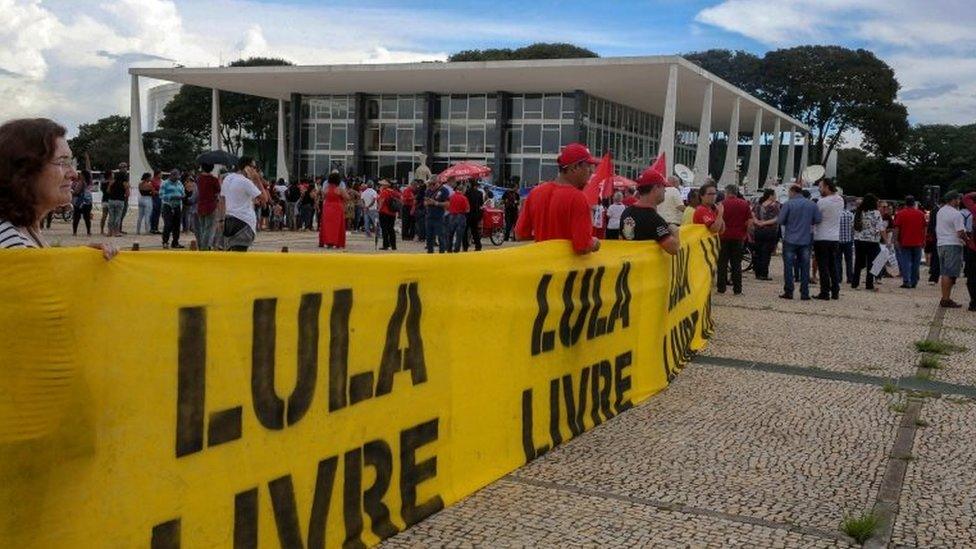
Supporters of Lula have been gathering in front of the Supreme Court to demand he remain free
Until recently, defendants in Brazil remained free until all of their appeals had been exhausted and only then would they be sent to jail.
That changed in 2016, when the Superior Court of Justice ruled that defendants could be jailed after their first appeal had failed.
The Supreme Court has been asked by Lula's lawyers to rule on the Superior Court of Justice's decision.
So the Supreme Court will not examine Lula's guilt or innocence or even his sentence but only decide whether he should be sent to prison now or remain free pending his remaining appeals.
Even if the ruling goes against him, he is unlikely to be arrested immediately as the paperwork for his arrest would have to be prepared first.
What are people protesting about?
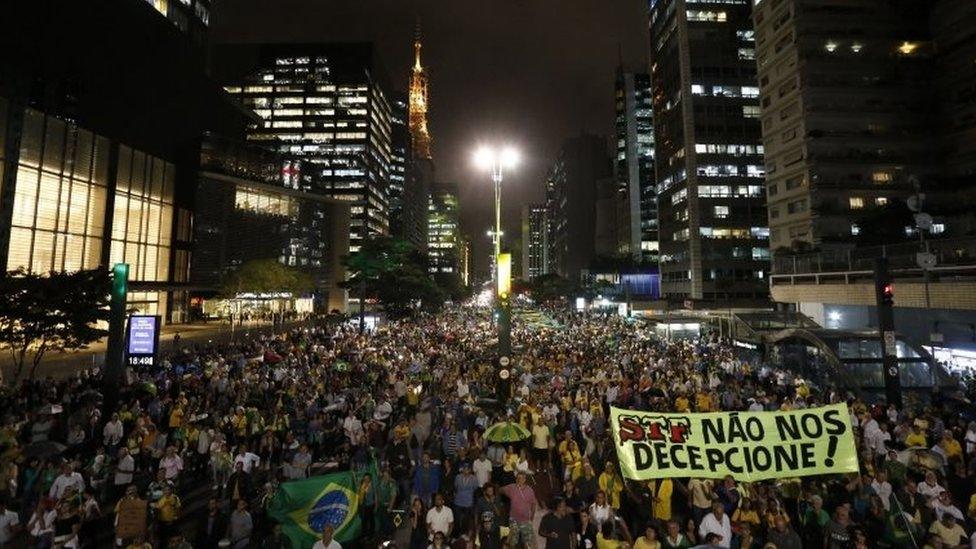
An estimated 20,000 people gathered in Sao Paulo to demand Lula be jailed
There have been rival protests. Police said up to 20,000 people took to the streets of São Paulo on Tuesday to demand Lula be jailed straight away and that he be barred from running for office. Many chanted "No more Lula!" and said they wanted to be "freed of this shameful corruption".
But supporters of Lula also gathered in cities across the country to express their continued backing for the former president.
What does Lula say?
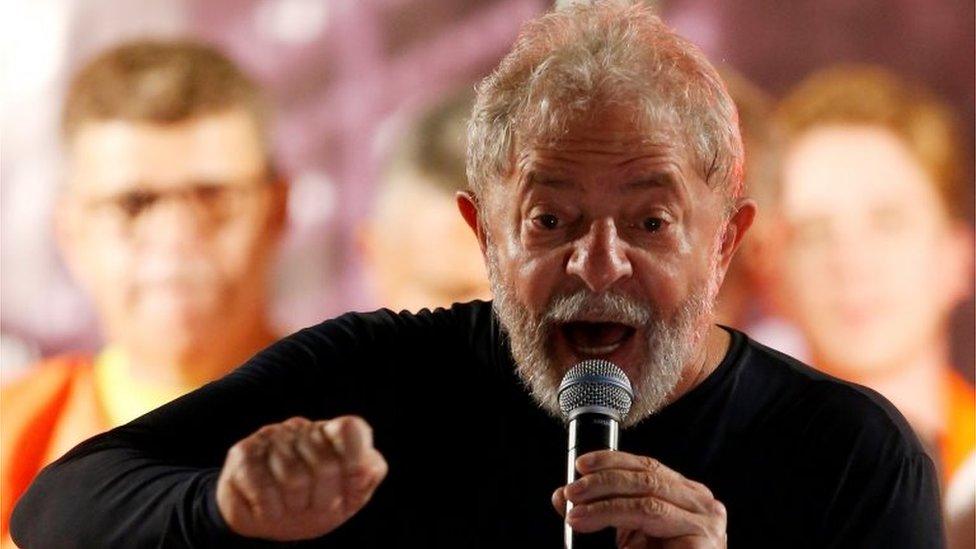
Lula says he is the victim of a political witch hunt
Lula has described the battle against his conviction and prison term as a continuation of his fight against Brazil's military rule, which came to an end in 1985.
"I did not accept the military dictatorship and I will not accept this dictatorship of the prosecutors," he told a gathering of supporters on Monday.
- Published29 March 2018
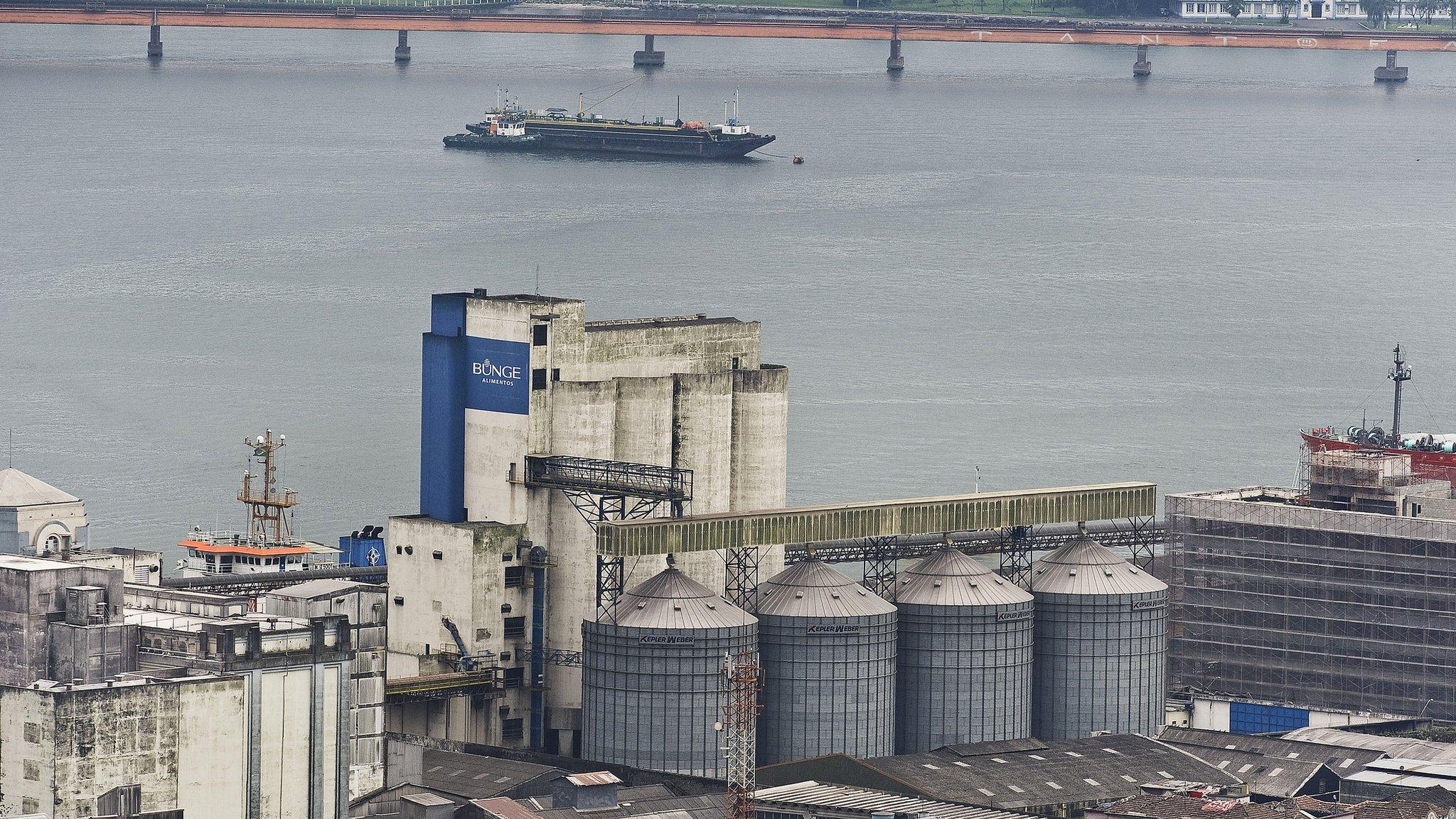
- Published25 January 2018
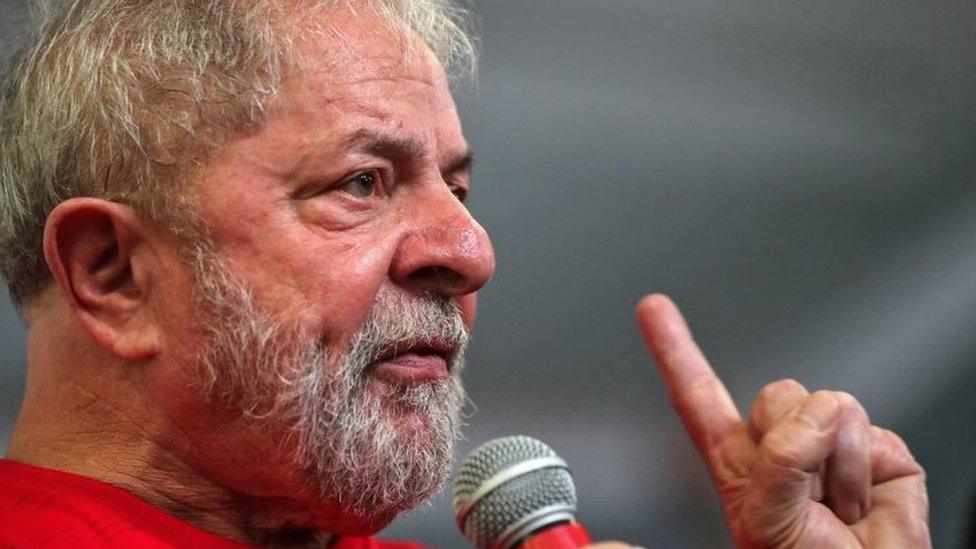
- Published24 January 2018
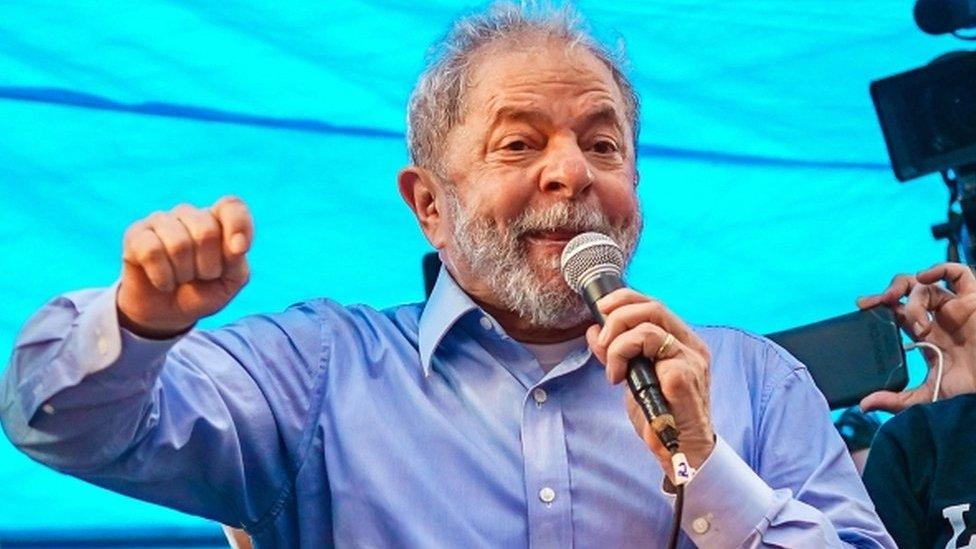
- Published23 January 2018
